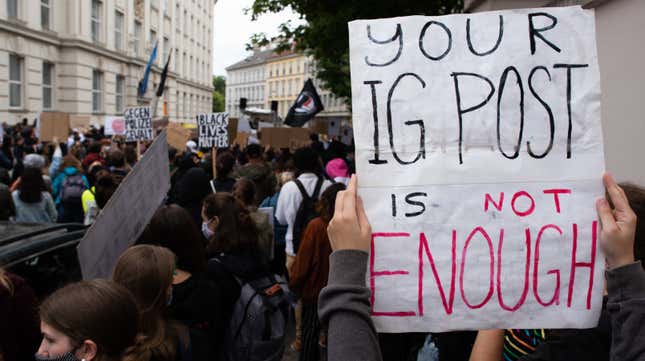Idiot Influencers Combat Racism by Posing in Blackface
Latest

As protesters in all 50 states and around the world continue to take to the street in response to the murders of George Floyd, Breonna Taylor, Ahmaud Arbery and other black Americans, Instagram influencers have awkwardly taken to their app to show signs of solidarity. Like many brands hoping that posting a black square with the hashtag “#BlackLivesMatter” on #BlackoutTuesday will be enough to trick the public into believing they are good and moral, influencers have mostly aimed for the bare minimum. Some are so clueless, they’ve chosen to illustrate messages of solidarity with racist posts.
I am, of course, talking about blackface.
-

-

-

-

-

-

-

-

-

-

-

-

-

-

-

-

-

-

-

-

-

-

-

-

-

-

-

-

-

-

-

-

-

-

-

-

-

-

-

-








































